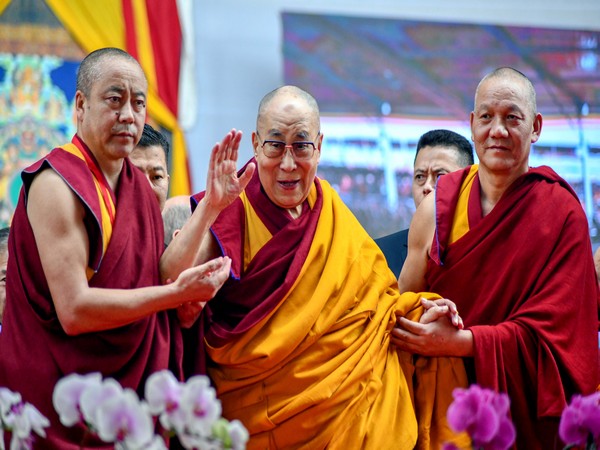Death of 14th Dalai Lama could spark religious crisis in Asia
As only a few years are left for Dalai Lama to turn 90-year-old, there are fears among the international community that his death could spark a religious crisis in Asia.

- Country:
- United States
As only a few years are left for Dalai Lama to turn 90-year-old, there are fears among the international community that his death could spark a religious crisis in Asia. The Buddhist figure, who is currently 85-year-old, had earlier announced that upon turning 90 he will decide whether he should be reincarnated.
According to CNN, while the 14th Dalai Lama, Tenzin Gyatso, is reportedly still in good health, questions over his succession are growing, along with fears that his death could lead to a religious crisis in Asia. The Chinese government occupied Tibet in 1950 and has ever since tried to control the region.
The Dalai Lama, whom China views as overseer of an "evil clique" that seeks to split Tibet from China, escaped to India in 1959 and the 10th Panchen Lama (Lobsang Trinley Lhundrup Choekyi Gyaltsen) stayed behind in Tibet. He spoke against Chinese rule many times and wrote a report chronicling Tibet's famines in the 1960s. In recent years, China has intensified its efforts to eradicate the Dalai Lama from the religious lives of Tibetans to crush their identity. During a meeting, Mao Zedong had told the 14th Dalai Lama, that "religion is poison."
According to CNN, over the years, the Dalai Lama has floated a number of options for his reincarnation, including picking a new successor himself in India, rather than in Tibet -- and has even toyed with the idea of a woman taking on the role. Meanwhile, the experts have opined that there are probabilities of choosing two separate Dalai Lamas -- one in China and another in India.
The Chinese government's State Religious Affairs Bureau had published a document in 2007 laying out "management measures" for the reincarnation of living Tibetan Buddhas. According to the document, the reincarnations of Tibetan religious figures must be approved by Chinese government authorities, and those with "particularly great impact" must be approved by the State Council, China's top civil administration body currently led by Premier Li Keqiang, CNN noted.
However, the Dalai Lama has stated that if he chooses to reincarnate, the responsibility for finding the 15th Dalai Lama will be on the Gaden Phodrang Trust, an India-based group he had founded after going into exile. Tenzin Tseten, a research fellow at the Dharamsala-based Tibet Policy Institute, was quoted as saying that the Dalai Lama is of great significance to the Tibetans and a symbol of their "nationalism and identity."
"The Tibetan people will never accept a CCP-appointed the Dalai Lama," Tenzin emphasised. While China continues with its policies to eradicate the Dalai Lama from the lives of Tibetans by bringing the religious institution under its control, the US has threatened to sanction the Chinese government officials who chose a reincarnation of the Dalai Lama over the wishes of the Tibetan people. (ANI)
(This story has not been edited by Devdiscourse staff and is auto-generated from a syndicated feed.)
ALSO READ
Selection Dilemma: Pant and Siraj Await Fate for India’s Upcoming ODI Series
White-Collar Terrorism: A New Threat in Modern India
Sri Lankan Navy Arrests 11 Indian Fishermen Amidst Escalating Tensions
AI, machine learning, other transforming technologies must be used positively to drive India's development: Rajnath Singh.
Scam Rescue: Indian Nationals Return Home from Myanmar










